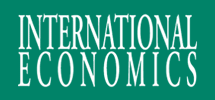
<< N°170
| N°170 | ||
| Issue Q2 2022 | ||
| Access to water and sanitation in Africa: Does globalization matter? | ||
|
Hervé Kaffo Fotio Stéphane Mbiankeu Nguea |
||
Despite efforts to achieve universal access to safe drinkable water and improved sanitation, many Africans still lack access to these social services. There are also disparities between urban and rural areas in access to these services in Africa. If sustained, this adverse trend could undermine the achievement of the United Nations’ Sustainable Development Goal 6 to ensure access to safe drinkable water and sanitation for all by 2030. This paper examines the effect of globalization on access to clean water and improved sanitation in Africa over the 1990–2015 period. Based on the panel corrected standard errors estimator, the results show that overall globalization improves access to water and improved sanitation while increasing disparities between urban and rural areas in access to improved sanitation. Among the sub-indexes of globalization, social globalization enhances access to drinkable water and improved sanitation for the total, urban and rural population. However, social globalization widens the urban-rural gap in access to improved sanitation while its effect on disparities in access to drinkable water is not significant. Economic globalization reduces the share of the population with access to improved sanitation while its effects on access to drinkable water and the urban-rural disparities in access in both social services are not statistically significant. Finally, some differences are found when distinguishing between de facto and de jure aspects of globalization. Policy implications are discussed.
|
Abstract |
|
| Globalization ; Drinkable water ; Improved sanitation ; Africa ; | Keywords | |
| F63 ; Q27 ; Q25 ; O55 ; | JEL classification | |
| Order form |